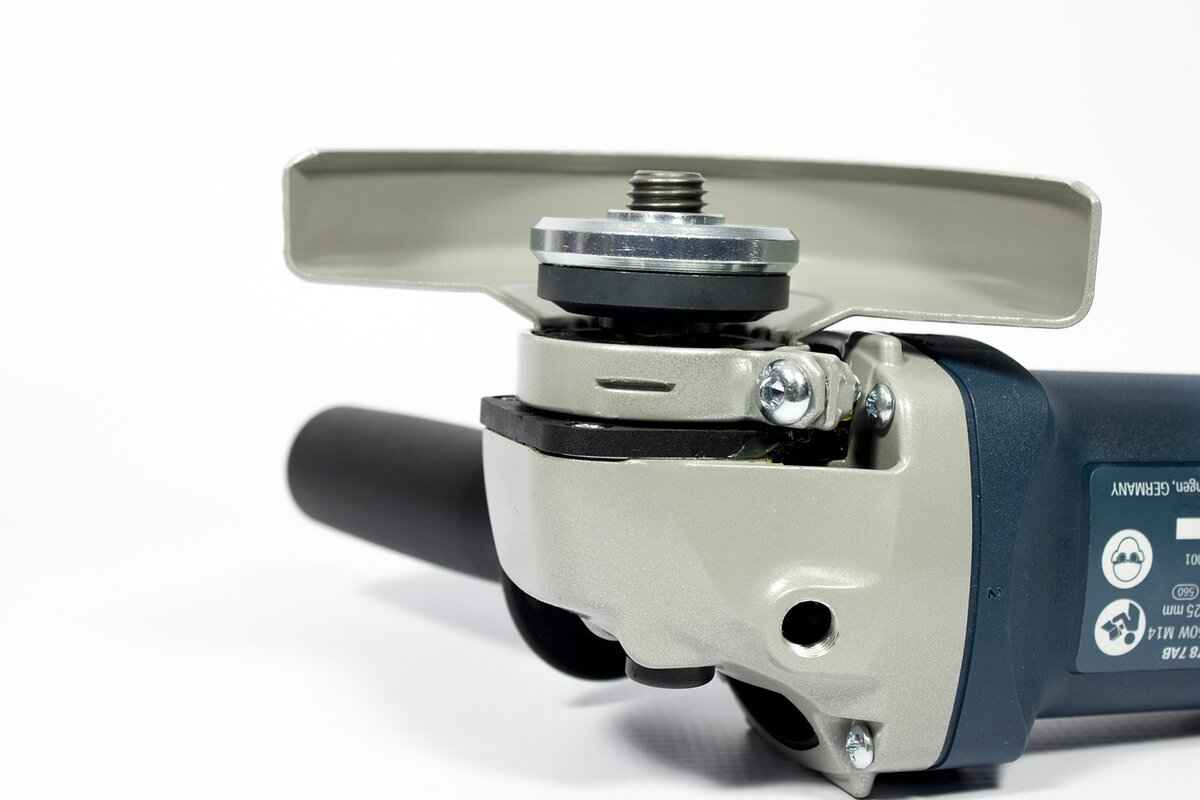This article delves into the critical factors that individuals should contemplate when considering the granting of a power of attorney (POA). We will cover the legal implications, the various types of POA, and best practices to ensure that your wishes are respected and followed.
Understanding Power of Attorney
A power of attorney is a legally binding document that empowers one individual, known as the agent, to act on behalf of another, referred to as the principal. This arrangement is particularly vital for making informed decisions about financial, legal, and healthcare matters when the principal is unable to do so themselves.
Types of Power of Attorney
There are several types of power of attorney, each tailored for different needs:
- General Power of Attorney: This grants broad authority to the agent, allowing them to manage a range of financial and legal tasks.
- Durable Power of Attorney: This remains effective even if the principal becomes incapacitated, ensuring continuous management of affairs.
- Medical Power of Attorney: This specifically allows the agent to make healthcare decisions on behalf of the principal.
Choosing the Right Agent
Selecting the right agent is perhaps the most crucial step in granting a power of attorney. Your agent should be someone who is not only trustworthy but also competent in handling the responsibilities that come with this role.
Trustworthiness and Reliability
Your agent will have significant control over your financial and legal matters, which makes it essential to choose someone you trust completely. A reliable agent will act in your best interests and adhere to your wishes.
Understanding the Agent’s Responsibilities
It is essential that your chosen agent understands their responsibilities and the scope of their authority. Clear communication regarding your expectations is vital for effective management.
Legal Requirements for Granting Power of Attorney
Each state has specific legal requirements for creating a power of attorney. Familiarizing yourself with these regulations is crucial to ensure your document is valid and enforceable.
State-Specific Regulations
Different states have unique laws governing powers of attorney. Understanding these can help you avoid potential legal complications down the road.
Notarization and Witnessing
Many states require that a power of attorney be notarized or witnessed to be legally binding. Adhering to these requirements is essential for the document’s legality.
Revoking a Power of Attorney
It is equally important to know how to revoke a power of attorney if your circumstances change. This knowledge can protect your interests and ensure that your affairs are managed according to your current wishes.
When to Revoke a Power of Attorney
Consider revoking a power of attorney if your agent is no longer trustworthy or if your personal needs evolve. Recognizing these signs is critical.
The Revocation Process
Revoking a power of attorney typically requires a written notice and notifying the agent. Following proper procedures ensures that the revocation is legally effective.
Implications of Granting Power of Attorney
Granting a power of attorney carries significant implications, including potential risks that you should be aware of.
Financial Risks
Your agent’s actions can lead to financial repercussions. Understanding these risks can help you safeguard your assets and interests.
Legal Accountability
Your agent may be held legally accountable for their actions. This knowledge can encourage responsible behavior and adherence to your wishes.
Best Practices for Granting Power of Attorney
Implementing best practices when granting a power of attorney can enhance its effectiveness:
- Regularly Reviewing Your Power of Attorney: Frequent reviews ensure that your document aligns with your current wishes and circumstances.
- Communicating with Your Agent: Maintaining open communication fosters transparency and ensures your agent understands your preferences.

Understanding Power of Attorney
A power of attorney (POA) is a vital legal document that empowers one individual, known as the agent, to act on behalf of another, referred to as the principal. This arrangement is essential for effective decision-making, particularly in situations where the principal may be unable to manage their own affairs due to health issues, travel, or other circumstances. Understanding the intricacies of a power of attorney is crucial for anyone considering granting this authority.
The primary purpose of a power of attorney is to ensure that someone you trust can make decisions on your behalf when you are unable to do so. This can encompass a range of areas, including financial management, healthcare decisions, and legal matters. By establishing a POA, you can ensure that your preferences are respected and that your affairs are managed according to your wishes.
There are several types of power of attorney, each tailored to specific needs:
- General Power of Attorney: This grants broad authority to the agent, allowing them to handle various financial and legal matters. It is particularly useful for comprehensive management of your affairs.
- Durable Power of Attorney: Unlike a general POA, a durable power of attorney remains effective even if the principal becomes incapacitated. This ensures continuous management of your affairs during critical times.
- Healthcare Power of Attorney: This specific type allows the agent to make medical decisions on behalf of the principal, ensuring that healthcare preferences are honored.
Selecting the right agent is one of the most important decisions when creating a power of attorney. The agent will have significant control over your affairs, so it is essential to choose someone who is both trustworthy and competent.
- Trustworthiness: Your agent should be someone you trust implicitly. Their reliability will greatly impact the management of your financial and legal matters.
- Understanding Responsibilities: Your agent must be aware of their responsibilities and the extent of their authority. Clear communication about expectations is essential for effective management.
The legal requirements for creating a power of attorney can vary significantly by state. It is crucial to understand these requirements to ensure that your document is valid and enforceable.
- State-Specific Regulations: Each state has unique regulations regarding powers of attorney. Familiarizing yourself with these can prevent legal complications in the future.
- Notarization and Witnessing: Many states require a power of attorney to be notarized or witnessed. Adhering to these requirements ensures the document’s legality.
It is equally important to know how to revoke a power of attorney should your circumstances change. Understanding the revocation process can protect your interests and ensure that your wishes are honored.
- When to Revoke: You may want to revoke a power of attorney if your agent is no longer trustworthy or if your needs change. Recognizing these signs is crucial.
- The Revocation Process: Revoking a power of attorney typically involves creating a written notice and notifying the agent. Following proper procedures ensures the revocation is legally effective.
Granting a power of attorney has significant implications, including potential risks. Being aware of these can help you make informed decisions.
- Financial Risks: Your agent’s actions can have financial repercussions. Understanding these risks can help you safeguard your assets and interests.
- Legal Accountability: Your agent may be held legally accountable for their actions. Knowing this can encourage responsible behavior and adherence to your wishes.
Implementing best practices when granting a power of attorney can enhance its effectiveness and ensure your wishes are honored.
- Regularly Reviewing Your Power of Attorney: Regular reviews can help ensure it remains aligned with your current wishes and circumstances.
- Communicating with Your Agent: Maintaining open lines of communication fosters transparency and ensures they understand your preferences.
In conclusion, understanding the nuances of a power of attorney is essential for effective decision-making. By carefully considering the type of POA, selecting a trustworthy agent, and adhering to legal requirements, you can ensure that your wishes are honored and your affairs are managed appropriately.

Types of Power of Attorney
When it comes to managing your legal and financial affairs, understanding the is crucial. Each type serves distinct purposes and can significantly impact how your affairs are handled in various situations. Below, we explore the different types of power of attorney, their specific uses, and what you should consider when selecting one that best meets your needs.
A general power of attorney grants broad authority to an agent, allowing them to act on your behalf in a wide range of matters. This includes handling financial transactions, signing documents, and managing real estate. This type of POA is particularly useful when you need someone to manage your affairs comprehensively, especially if you are traveling or unable to attend to your responsibilities.
The durable power of attorney remains effective even if you become incapacitated. This means that if you are unable to make decisions due to illness or injury, your agent can continue to manage your affairs without interruption. This type of POA is essential for anyone who wants to ensure their financial and medical decisions are handled according to their wishes when they cannot advocate for themselves.
A healthcare power of attorney specifically allows your agent to make medical decisions on your behalf if you are unable to do so. This includes decisions about treatment options, medical procedures, and end-of-life care. It’s vital to choose someone who understands your healthcare preferences and values, as they will have significant influence over your medical care during critical times.
A limited power of attorney restricts the agent’s authority to specific tasks or a defined period. For instance, you might grant a limited POA to someone to handle the sale of a property while you are out of the country. This type of POA is beneficial when you need assistance with particular transactions without relinquishing control over your entire financial landscape.
A springing power of attorney becomes effective only under specific conditions, typically when you become incapacitated. This type of POA allows for greater control over when your agent can act on your behalf, ensuring that they only step in when absolutely necessary. It’s important to clearly define the triggering event to avoid confusion or disputes.
When deciding which type of power of attorney to grant, consider factors such as:
- Your needs: Assess what aspects of your life require management and choose a POA type accordingly.
- Trust in your agent: Ensure that the person you choose is trustworthy, as they will have significant control over your affairs.
- Legal requirements: Different states may have specific regulations regarding the creation and execution of power of attorney documents.
Understanding the distinctions between the various types of power of attorney can help you make informed decisions that align with your personal circumstances and preferences. By carefully considering your options, you can ensure that you select the right POA to protect your interests and ensure your wishes are honored.
General Power of Attorney
A General Power of Attorney is a powerful legal tool that provides an agent with extensive authority to act on behalf of another individual, known as the principal. This document is particularly beneficial for those who may require assistance managing their financial and legal affairs due to various reasons, such as aging, illness, or travel. By granting a general power of attorney, the principal can ensure that their interests are managed effectively and efficiently.
A general power of attorney typically encompasses a wide range of responsibilities. The agent can:
- Manage bank accounts and financial transactions
- Make investment decisions
- Handle real estate transactions
- File tax returns and manage tax-related matters
- Make legal decisions and represent the principal in legal matters
This broad authority allows the agent to act in the principal’s best interests across various facets of their life, making it an invaluable tool for comprehensive management.
One of the primary advantages of a general power of attorney is its flexibility. The agent can respond to changing circumstances and make decisions promptly without needing to consult the principal for every action. This can be particularly crucial in emergencies where immediate decisions are necessary.
Moreover, a general power of attorney can help streamline financial and legal processes, reducing the burden on the principal. For instance, if the principal is traveling abroad, their agent can manage their affairs without delay, ensuring that bills are paid, investments are monitored, and any legal matters are addressed in a timely manner.
While a general power of attorney offers numerous benefits, it is vital to understand its limitations. Since the agent has broad authority, there is a risk of misuse or mismanagement of the principal’s assets. Therefore, it is essential to choose an agent who is trustworthy and has a clear understanding of their responsibilities.
Additionally, a general power of attorney becomes void if the principal becomes incapacitated unless it is designated as a durable power of attorney. This distinction is crucial for individuals who want to ensure that their affairs are managed even if they are unable to make decisions themselves.
Creating a general power of attorney involves specific legal requirements that vary by state. Generally, the document must be:
- Written and signed by the principal
- Notarized or witnessed, depending on state laws
It is advisable to consult with a legal professional to ensure that the document complies with local regulations and accurately reflects the principal’s wishes.
Should circumstances change, the principal has the right to revoke a general power of attorney at any time. This process typically involves creating a written notice of revocation and informing the agent and any relevant financial institutions. It is crucial to follow the proper procedures to ensure that the revocation is legally effective.
In conclusion, a general power of attorney is a versatile and powerful document that can significantly aid in managing one’s financial and legal affairs. However, it is essential to approach this decision with careful consideration, ensuring that the chosen agent is reliable and that all legal requirements are met. By doing so, individuals can protect their interests and ensure that their wishes are honored.
Durable Power of Attorney
is a crucial legal tool that ensures your affairs are managed according to your wishes, even if you become incapacitated. This document designates an individual, known as the agent, to make decisions on your behalf when you are unable to do so. Understanding the importance and implications of a durable power of attorney is essential for anyone considering this option.
When you grant a durable power of attorney, you are essentially providing your agent with the authority to manage your financial, legal, and healthcare decisions. This can include handling banking transactions, paying bills, and making medical decisions. The key feature of a durable power of attorney is its durability; it remains effective even if you lose the ability to make decisions due to illness or injury. This is particularly important for individuals who wish to ensure their affairs are in capable hands during times of crisis.
Why Choose a Durable Power of Attorney?
- Continuity of Care: A durable power of attorney guarantees that your healthcare and financial decisions are made consistently, reflecting your personal values and wishes.
- Avoiding Court Intervention: By establishing a durable power of attorney, you can avoid the need for a court-appointed guardian or conservator, which can be a lengthy and costly process.
- Flexibility: You can tailor the authority granted to your agent, specifying what decisions they can make and under what circumstances.
Choosing the Right Agent
When selecting an agent for your durable power of attorney, it is vital to choose someone who is both trustworthy and competent. This person will have significant control over your affairs, so consider the following:
- Trustworthiness: Your agent should be someone you trust implicitly, as they will be making decisions that could impact your financial and personal well-being.
- Competence: Choose an individual who is capable of managing your affairs responsibly and understands the implications of the decisions they will make.
- Willingness: Ensure that your chosen agent is willing to take on this responsibility and understands the importance of their role.
Legal Requirements for Establishing a Durable Power of Attorney
The legal requirements for creating a durable power of attorney can vary by state. It is essential to familiarize yourself with these regulations to ensure that your document is valid and enforceable. Common requirements include:
- Notarization: Many states require the document to be notarized to enhance its legal standing.
- Witnessing: Some states mandate witnesses to sign the document, providing additional verification of your intent.
Revocation of Durable Power of Attorney
It is equally important to understand how to revoke a durable power of attorney if your circumstances change or if you no longer trust your agent. The process typically involves:
- Written Notice: You must provide a written notice of revocation to your agent and any institutions that may have a copy of the original document.
- Clear Communication: Inform your agent of the revocation to prevent any confusion regarding their authority.
In summary, a durable power of attorney is an essential legal document that provides peace of mind by ensuring that your affairs are managed according to your wishes, even in times of incapacity. By carefully selecting a trustworthy agent and understanding the legal requirements, you can create a robust plan that protects your interests and upholds your values.

Choosing the Right Agent
Choosing the right agent for your power of attorney is a critical decision that can have lasting effects on your financial and personal affairs. The agent you select will have the authority to make significant decisions on your behalf, which is why it is essential to choose someone who is not only trustworthy but also competent in handling such responsibilities.
When considering whom to appoint as your agent, it is important to evaluate their character and capabilities. Look for someone who has demonstrated integrity in their personal and professional life. This might be a family member, a close friend, or even a professional advisor. Regardless of your choice, they should be someone you can rely on to act in your best interest.
- Trustworthiness: Your agent will have access to sensitive information and financial resources. Therefore, it is paramount that you choose someone with a strong moral compass.
- Competence: The agent should possess the necessary skills and knowledge to manage your affairs effectively. This includes understanding financial matters, legal obligations, and any specific requirements related to your situation.
- Availability: Ensure that your chosen agent is willing and able to take on this responsibility. They should be available to make decisions promptly when needed.
Additionally, it is vital to have a clear understanding of your agent’s responsibilities. They should be aware of the extent of their authority and the specific duties they are expected to perform. This includes managing your financial accounts, making healthcare decisions, and handling any legal matters that may arise. A well-defined communication strategy is essential to ensure that your agent understands your preferences and priorities.
It is also advisable to have an open discussion with your potential agent about your expectations. This conversation can help clarify their role and provide an opportunity for them to ask questions. By fostering a transparent relationship, you can help ensure that your wishes are honored.
Another important aspect to consider is the potential for conflicts of interest. If your agent is also a beneficiary of your estate, it may lead to situations where their interests conflict with your wishes. To mitigate this risk, you may want to appoint a neutral third party, such as an attorney or a financial advisor, as your agent.
In summary, selecting the right agent for your power of attorney is a decision that requires careful consideration. By focusing on trustworthiness, competence, and clear communication, you can ensure that your agent will act in your best interests and manage your affairs effectively. This will not only provide you with peace of mind but also help safeguard your financial and personal well-being.
Trustworthiness and Reliability
When considering the trustworthiness and reliability of an agent for your power of attorney, it is imperative to choose someone who embodies these qualities. The agent you select will be entrusted with significant responsibilities, managing not only your financial matters but also your legal affairs. This decision can have profound implications on your life, especially in times of need.
First and foremost, you should evaluate the character and integrity of the individual you are considering. A trustworthy agent is someone who has demonstrated ethical behavior in their personal and professional life. Look for someone who has a history of making sound decisions and acting in the best interests of others. You might consider asking yourself the following questions:
- Has this person been reliable in past commitments?
- Do they have a strong moral compass?
- Are they financially responsible?
Moreover, the reliability of your chosen agent is equally crucial. Reliability refers to the agent’s ability to consistently follow through on their commitments and act in accordance with your wishes. An unreliable agent can lead to mismanagement of your affairs, which could have dire consequences. It is essential to assess their availability and willingness to take on the responsibilities associated with being your agent. Consider the following:
- Do they have the time and resources to manage your affairs effectively?
- Are they willing to communicate regularly and keep you informed?
- Can they handle the stress that may come with making critical decisions on your behalf?
In addition to personal qualities, it is wise to consider the agent’s background and experience. An agent with a background in finance, law, or healthcare may be better equipped to handle complex situations that could arise. For example, if your affairs involve significant financial assets, an agent with financial expertise can provide invaluable insights and guidance.
Furthermore, establishing clear lines of communication is vital. Discuss your expectations openly with your chosen agent. Ensure they understand your values, preferences, and the specific decisions you would like them to make on your behalf. This transparency not only fosters trust but also enables them to act in alignment with your wishes.
It is also important to have a backup plan in case your primary agent is unable or unwilling to fulfill their duties. Designating an alternate agent can provide peace of mind, ensuring that your affairs are managed even in unforeseen circumstances. Make sure that both your primary and alternate agents are aware of their roles and responsibilities, and maintain regular communication with them to reinforce your trust.
Ultimately, the choice of agent is one of the most significant decisions you will make when granting a power of attorney. By prioritizing trustworthiness and reliability, you can ensure that your financial and legal matters are managed according to your wishes, providing you with peace of mind in both the present and future.
Understanding the Agent’s Responsibilities
When granting a power of attorney (POA), it is paramount to understand the responsibilities of the agent you choose. An agent, also referred to as an attorney-in-fact, is entrusted with significant authority to act on your behalf. Therefore, a clear understanding of their responsibilities and the extent of their authority is essential for effective management of your affairs.
The first step in ensuring that your agent is prepared for their role is to engage in open communication. Discussing your expectations with your agent can help clarify their responsibilities. This discussion should cover a variety of topics, including:
- Financial Management: Your agent may be responsible for handling bank accounts, paying bills, and managing investments. They should understand your financial goals and preferences.
- Legal Decisions: If granted authority, your agent may make legal decisions on your behalf, including signing contracts or filing legal documents. They must be familiar with your wishes regarding such matters.
- Healthcare Choices: In some cases, the agent may also be responsible for making healthcare decisions. It is crucial they understand your medical preferences and values.
It is also important for your agent to be aware of the limitations of their authority. While a general power of attorney grants broad powers, a limited power of attorney may restrict the agent’s actions to specific tasks. Ensuring that your agent understands these limitations can prevent potential abuse of power and mismanagement.
Moreover, your agent should be prepared to act in your best interest at all times. This includes making decisions that align with your values and preferences. To facilitate this, consider providing your agent with a written guide outlining your wishes and any specific instructions. This guide can serve as a valuable reference for your agent, ensuring they remain aligned with your intentions.
Additionally, it is advisable to have regular check-ins with your agent. These meetings provide an opportunity to discuss any changes in your circumstances or preferences. Keeping the lines of communication open not only strengthens the relationship but also enhances the agent’s ability to manage your affairs effectively.
Another key aspect is the legal accountability of your agent. Agents are obligated to act within the bounds of the law and according to the terms of the power of attorney document. Understanding the legal implications of their actions can encourage your agent to act responsibly and ethically. In case of any misconduct, you retain the right to revoke the power of attorney and seek legal recourse if necessary.
In conclusion, selecting the right agent and ensuring they understand their responsibilities is critical when granting a power of attorney. Clear communication, regular updates, and a thorough understanding of the extent of their authority will foster effective management of your affairs. By taking these steps, you can ensure that your wishes are honored and your interests are protected.

Legal Requirements for Granting Power of Attorney
When considering the establishment of a Power of Attorney (POA), it is essential to understand the various legal requirements that vary from state to state. A power of attorney is a critical legal document that allows one individual (the principal) to grant another person (the agent) the authority to act on their behalf. This article delves into the specific legal requirements you must consider to ensure that your POA is valid and enforceable.
State-Specific Regulations
Each state in the United States has its own set of regulations governing the creation and execution of a power of attorney. These regulations can dictate everything from the language used in the document to the manner in which it must be signed and witnessed. For instance, some states may require the POA to be executed in the presence of a notary public, while others may mandate the signatures of witnesses. Familiarizing yourself with your state’s requirements is crucial to avoid potential legal complications.
Notarization and Witnessing
In many jurisdictions, notarization is a key requirement for a valid power of attorney. This process involves having a notary public verify the identities of the individuals involved and witness the signing of the document. Additionally, some states may require one or more witnesses to also sign the document. This adds an extra layer of protection against fraud and ensures that the principal is acting of their own free will.
Durability of the Power of Attorney
Another important legal aspect to consider is whether the power of attorney is durable. A durable power of attorney remains effective even if the principal becomes incapacitated. This is particularly important for individuals who wish to ensure that their financial and medical affairs are managed should they lose the capacity to make decisions. States have specific laws regarding the language that must be included in a durable power of attorney, so it is vital to include the correct phrasing to meet these requirements.
Revocation of Power of Attorney
Understanding how to revoke a power of attorney is equally important as knowing how to create one. The principal retains the right to revoke a POA at any time, provided they are mentally competent. States typically require a written notice of revocation to be drafted and delivered to the agent and any relevant third parties. This ensures that the agent no longer has authority to act on behalf of the principal, thereby safeguarding the principal’s interests.
Common Mistakes to Avoid
- Failing to adhere to state-specific requirements, which can render the document invalid.
- Not discussing the responsibilities and authority with the chosen agent, leading to misunderstandings.
- Neglecting to keep the document updated, especially after significant life changes.
Importance of Professional Guidance
Given the complexities involved in creating a power of attorney, it is often beneficial to seek the advice of a qualified attorney. An experienced lawyer can provide valuable insights into state-specific laws and help draft a document that accurately reflects your wishes while ensuring compliance with legal standards. This professional guidance can be instrumental in avoiding pitfalls and ensuring that your power of attorney serves its intended purpose effectively.
In summary, understanding the legal requirements for granting a power of attorney is essential for ensuring its validity. By being aware of state-specific regulations, notarization and witnessing requirements, and the importance of durability, you can take the necessary steps to protect your interests and ensure your wishes are honored.
State-Specific Regulations
When considering the granting of a power of attorney, it is crucial to understand that can significantly impact the validity and effectiveness of the document. Each state in the United States has its own set of laws governing powers of attorney, which can lead to potential legal complications if not properly addressed. This article will delve into the various regulations that exist in different states, emphasizing the importance of familiarizing oneself with these laws.
One of the primary factors to consider is that the requirements for creating a power of attorney can vary widely from state to state. For example, some states may require the document to be notarized or witnessed, while others may have specific forms that must be used. Failure to comply with these state-specific requirements can render your power of attorney ineffective, which could lead to complications in decision-making during critical times.
| State | Notarization Required | Witnesses Required | Special Provisions |
|---|---|---|---|
| California | Yes | 1 | Agent must sign the document |
| Texas | No | 0 | Durable POA must include specific language |
| New York | Yes | 1 | Must be in writing and signed |
Not adhering to state regulations can lead to significant legal complications. For instance, if a power of attorney is not executed in accordance with state laws, third parties may refuse to recognize it. This can create delays in accessing financial accounts or making healthcare decisions when time is of the essence.
Given the complexities involved, it is advisable to consult with a legal expert who specializes in estate planning or elder law. An attorney can provide guidance tailored to your specific state and circumstances, ensuring that your power of attorney is valid and enforceable. They can also help you navigate the intricacies of state laws, including any recent changes that may affect your document.
Another essential aspect of managing a power of attorney is the need for regular updates. Life circumstances change, and so do state laws. Regularly reviewing your power of attorney can help ensure that it remains compliant with current regulations and aligned with your wishes. This practice is vital for maintaining the effectiveness of your legal documents.
In summary, understanding state-specific regulations regarding powers of attorney is crucial for anyone considering granting this authority. By familiarizing yourself with these laws and consulting with legal professionals, you can prevent legal complications and ensure that your wishes are honored. Always remember that proactive measures can save you and your loved ones from unnecessary stress and complications in the future.
Notarization and Witnessing
When considering the establishment of a power of attorney (POA), understanding the legal requirements surrounding notarization and witnessing is crucial. Many states across the United States mandate that a power of attorney document must be either notarized or witnessed to ensure its legality and enforceability. This article delves into the significance of these requirements, the processes involved, and the implications for individuals granting a power of attorney.
Notarization serves as a safeguard against fraud and ensures that the principal (the person granting the power) is acting voluntarily and with full understanding of the document’s implications. A notary public verifies the identity of the signers and confirms that they are signing the document willingly. This process adds a layer of authenticity, making it more difficult for someone to dispute the validity of the power of attorney.
In addition to notarization, some states require that the signing of a power of attorney be witnessed by one or more individuals. Witnesses must typically be impartial parties who do not stand to gain from the execution of the document. The presence of witnesses further protects against potential fraud and ensures that the principal’s wishes are clearly documented and respected.
It is essential to note that the requirements for notarization and witnessing can vary significantly from state to state. For example:
| State | Notarization Required | Witnesses Required |
|---|---|---|
| California | Yes | One witness |
| New York | Yes | One witness |
| Texas | No | Two witnesses |
Before executing a power of attorney, it is advisable to consult with an attorney or check your state’s laws to ensure compliance with all legal requirements.
Adhering to the notarization and witnessing requirements is vital for ensuring that the power of attorney remains valid and enforceable. Failure to comply with these requirements can result in the document being contested in court, rendering it ineffective when you need it most. This could lead to significant complications, especially if the principal becomes incapacitated and unable to make decisions on their own.
- Consult an Attorney: It is highly recommended to seek legal advice to ensure that your power of attorney meets all state-specific requirements.
- Choose Your Agent Wisely: Ensure that the person you designate as your agent is trustworthy and understands their responsibilities.
- Complete the Document Correctly: Ensure that all necessary signatures, notarization, and witnessing are properly executed.
- Keep Copies: Maintain copies of the signed document in a safe place and provide copies to your agent and any relevant parties.
In conclusion, understanding the notarization and witnessing requirements for a power of attorney is essential for anyone considering this important legal tool. By ensuring compliance with state laws and following best practices, you can protect your interests and ensure that your wishes are honored in the event that you cannot make decisions for yourself.

Revoking a Power of Attorney
is a crucial step that individuals must be prepared to take should their circumstances change. This process not only safeguards your interests but also ensures that your wishes are respected in any legal or financial decisions made on your behalf.
A Power of Attorney (POA) grants another individual the authority to act on your behalf. However, there may come a time when you need to revoke this authority. Understanding the reasons and methods for revoking a POA can help you maintain control over your personal and financial affairs.
- Loss of Trust: If you feel that your agent is no longer acting in your best interest or has breached your trust, it may be time to revoke the POA.
- Change in Circumstances: Life events such as divorce, relocation, or changes in health can necessitate the revocation of a POA.
- Agent’s Incompetence: If your agent is unable to fulfill their duties due to mental or physical incapacity, revocation is essential.
Revoking a power of attorney typically involves the following steps:
- Create a Revocation Document: Draft a written notice that clearly states your intention to revoke the existing power of attorney. This document should include your name, the name of the agent, and a statement indicating the revocation of authority.
- Notify the Agent: It is essential to inform your agent of the revocation. This can be done in person or via certified mail to ensure there is a record of the notification.
- Inform Third Parties: If the agent has been acting on your behalf in financial or legal matters, notify any institutions or individuals that may have relied on the power of attorney. This helps prevent any misunderstandings or unauthorized actions.
- Consult an Attorney: Although not always necessary, consulting with a legal professional can provide additional assurance that the revocation is executed properly and in accordance with state laws.
Each state may have specific laws governing the revocation of a power of attorney. It is crucial to familiarize yourself with these regulations to ensure the revocation is valid. Some states require the revocation document to be notarized or witnessed to be legally enforceable.
Revoking a power of attorney can have significant implications, particularly if the agent was managing critical aspects of your financial or medical decisions. It is important to have a plan in place for who will take over these responsibilities after revocation.
In some cases, individuals may choose to establish a new power of attorney after revocation. This can be beneficial if you have identified a new agent whom you trust more or if your needs have changed significantly.
In conclusion, understanding the process of revoking a power of attorney is essential for anyone who has granted this authority. By being proactive and knowledgeable about your options, you can ensure that your interests are protected and that your decisions are respected.
When to Revoke a Power of Attorney
Understanding when to revoke a power of attorney (POA) is essential for anyone who has granted such authority to another individual. Life circumstances can change, and so can your trust in the agent you selected. Here, we will explore the critical signs indicating that it may be time to revoke a power of attorney, along with the steps involved in the revocation process.
- Loss of Trust: If you find that your agent is no longer trustworthy due to personal issues, financial irresponsibility, or unethical behavior, it is crucial to reconsider your decision. Trust is the foundation of a successful POA relationship.
- Change in Needs: Your personal or financial circumstances may evolve, necessitating a different type of management or representation. For example, if you have recovered from an illness or your financial situation has improved, you may want to appoint a new agent who aligns better with your current needs.
- Agent’s Incompetence: If your agent demonstrates a lack of understanding of their responsibilities, or if they fail to act in your best interest, revocation is warranted. A competent agent should manage your affairs with diligence and care.
- Conflict of Interest: If your agent has developed a conflict of interest that may hinder their ability to act in your best interest, it is prudent to revoke their authority. This could arise from personal relationships or financial dealings that compromise their objectivity.
The Revocation Process
Revoking a power of attorney is a straightforward process, but it must be conducted properly to ensure legal effectiveness. Here are the steps involved:
- Create a Written Revocation: Draft a formal document stating your intention to revoke the existing power of attorney. Include your name, the agent’s name, and a clear statement of revocation.
- Notify Your Agent: Deliver the revocation document to your agent personally or via certified mail. This step is crucial; your agent must be aware that their authority has been terminated.
- Inform Relevant Parties: If your power of attorney was shared with banks, healthcare providers, or other institutions, notify them of the revocation to prevent any unauthorized actions on your behalf.
- Consider Legal Assistance: While the revocation process can be done independently, consulting with an attorney can provide additional assurance that all legal requirements are met.
Legal Implications of Revocation
Revoking a power of attorney does not absolve the agent of any actions taken while they were authorized. Therefore, it is vital to monitor your agent’s activities up until the point of revocation. Furthermore, if the revocation is not conducted properly, it may lead to complications or disputes in the future.
In conclusion, recognizing the signs that indicate a need to revoke a power of attorney is crucial for protecting your interests. Whether due to loss of trust, changes in your circumstances, or the agent’s incompetence, taking prompt action can safeguard your affairs. Always ensure that you follow the proper procedures for revocation to maintain the legality of your decisions.
The Revocation Process
Revoking a power of attorney (POA) is a critical process that requires careful attention to detail. Whether due to a change in circumstances, a loss of trust in the agent, or the principal’s changing needs, understanding how to effectively revoke a POA is essential for protecting one’s interests. This article outlines the steps involved in the revocation process, ensuring that you are informed and prepared.
There are several reasons why an individual might consider revoking a power of attorney. It may be due to a loss of trust in the agent, changes in personal circumstances, or a desire to appoint a different agent who may better align with the principal’s current needs. Recognizing the right moment to initiate revocation is crucial for safeguarding your interests.
- Draft a Revocation Notice: The first step in the revocation process is to create a formal written notice that clearly states your intention to revoke the power of attorney. This document should include your name, the date, and a statement indicating the revocation of the previous POA.
- Notify the Agent: Once the revocation notice is prepared, it is vital to inform the agent of the revocation. This can be done in person, via certified mail, or through another reliable method to ensure that the agent receives the notice.
- Inform Relevant Third Parties: If the agent has been acting on your behalf in various transactions, it is important to notify any relevant third parties, such as banks or healthcare providers, of the revocation. Providing them with a copy of the revocation notice can help prevent any unauthorized actions by the former agent.
- Consider Notarization: While not always required, having the revocation notice notarized can add an extra layer of legal protection. This step can help confirm the authenticity of the document and may be beneficial if any disputes arise in the future.
Understanding the legal implications of revoking a power of attorney is crucial. The revocation must comply with state-specific laws to ensure its effectiveness. Some states may require the revocation to be executed in a certain manner, including specific wording or the presence of witnesses. Familiarizing yourself with these requirements can help avoid potential legal complications.
If you find the process overwhelming or if there are complexities involved—such as disputes with the agent or concerns about the agent’s previous actions—consider seeking legal assistance. An experienced attorney can guide you through the revocation process and ensure that all necessary steps are properly followed.
Revoking a power of attorney is an important step that should not be taken lightly. By following the proper procedures—drafting a clear revocation notice, notifying the agent and relevant third parties, and understanding the legal requirements—you can ensure that your wishes are respected and your interests protected. Always consider consulting with a legal professional to navigate this process effectively.

Implications of Granting Power of Attorney
Granting a power of attorney (POA) is a significant decision that can have far-reaching implications. Understanding these implications is essential to making informed choices about your legal and financial future. This article delves into the various aspects of granting a power of attorney, including potential risks and considerations.
A power of attorney is a legal document that empowers one individual (the agent) to make decisions on behalf of another (the principal). This authority can encompass a wide range of matters, from financial transactions to healthcare decisions. Given the weight of this responsibility, it is crucial to grasp the implications that accompany such an arrangement.
While granting a POA can provide peace of mind, it also carries inherent risks. Understanding these risks can help you navigate the complexities involved:
- Financial Mismanagement: One of the most significant risks is the potential for financial mismanagement. If the agent does not act in the principal’s best interest, it could lead to substantial financial losses.
- Fraudulent Activities: There is a risk of fraud if the agent misuses their authority. This could involve unauthorized transactions or manipulation of assets.
- Loss of Control: By granting a POA, you relinquish a degree of control over your affairs. This can be particularly concerning if the agent’s decisions do not align with your wishes.
Agents are legally obligated to act in the best interest of the principal. However, the extent of this accountability may vary based on jurisdiction. Understanding the legal framework surrounding POAs can provide clarity on how to protect your interests:
- Fiduciary Duty: Agents have a fiduciary duty to act with loyalty and care. Breaching this duty can result in legal consequences.
- Documentation and Record-Keeping: Maintaining thorough records of all transactions can help safeguard against potential disputes and provide evidence of the agent’s compliance with their responsibilities.
To ensure your power of attorney serves your best interests, consider implementing the following best practices:
- Choose Wisely: Select an agent who is trustworthy, competent, and understands your values and preferences.
- Limit Authority: If appropriate, consider granting a limited power of attorney that restricts the agent’s authority to specific tasks or time frames.
- Regular Reviews: Periodically review your power of attorney to ensure it remains aligned with your current situation and wishes.
Effective communication with your agent is vital. Clearly articulating your preferences and expectations can help minimize misunderstandings and ensure that your wishes are honored. Regular discussions can foster a collaborative relationship, making it easier for your agent to make decisions that reflect your values.
It is essential to be aware of the specific regulations governing powers of attorney in your state. These laws can affect the validity and enforceability of your document:
- Notarization and Witnessing: Many states require a power of attorney to be notarized or witnessed to be legally binding. Ensure that you comply with these requirements to avoid complications.
- Revocation Procedures: Understanding how to revoke a power of attorney is equally important. If circumstances change, knowing the proper procedures can help you regain control over your affairs.
In conclusion, granting a power of attorney is a powerful tool that comes with significant implications. By understanding the potential risks and implementing best practices, you can ensure that your interests are protected and your wishes are honored.
Financial Risks
When considering the implications of granting a power of attorney, it is essential to understand the involved. Your agent’s actions can have significant financial repercussions, which can affect your assets and overall financial health. Recognizing these risks is crucial for safeguarding your interests.
First and foremost, it’s important to understand that a power of attorney gives your agent the authority to make decisions on your behalf, which can include managing your finances, paying bills, and even selling property. If your agent acts in a manner that is not aligned with your best interests, the consequences can be dire. Here are some key financial risks to consider:
- Mismanagement of Funds: An agent may unintentionally mismanage your funds, leading to financial losses. This can occur if they lack experience or understanding of financial matters.
- Fraud or Abuse: Unfortunately, there are instances where agents exploit their authority for personal gain. This can include unauthorized withdrawals or selling assets without your consent.
- Conflicts of Interest: An agent might have personal interests that conflict with your financial well-being. For example, they may prioritize their financial needs over yours, leading to decisions that are not in your best interest.
- Inadequate Record Keeping: Your agent is responsible for keeping accurate records of all transactions. Poor record-keeping can lead to disputes and a lack of accountability, making it difficult to track where your money is going.
- Legal Liabilities: If your agent makes poor financial decisions, they could be held legally accountable. However, proving this liability can be a complex and lengthy process.
To mitigate these risks, consider the following best practices:
- Choose Wisely: Select an agent who is not only trustworthy but also financially savvy. This will help ensure that your finances are managed competently.
- Limit Authority: You can specify the extent of your agent’s authority in the power of attorney document. This can help prevent them from making significant financial decisions without your explicit consent.
- Regular Audits: Implement a system for regularly reviewing your agent’s activities. This can include requiring them to provide periodic financial statements or documentation of transactions.
- Communicate Your Wishes: Clearly communicate your financial goals and preferences to your agent. This will help them make decisions that align with your values and expectations.
In conclusion, understanding the financial risks associated with granting a power of attorney is essential for protecting your assets. By being proactive and implementing safeguards, you can minimize potential pitfalls and ensure that your financial matters are handled according to your wishes.
Legal Accountability
When it comes to granting a power of attorney (POA), understanding the implications of is paramount. Your agent, the individual you designate to act on your behalf, holds significant responsibility and can be held legally accountable for their actions. This knowledge is crucial, as it encourages not only responsible behavior from the agent but also ensures that your wishes are effectively adhered to.
What Does Legal Accountability Mean?
Legal accountability refers to the obligation of your agent to act in your best interests and manage your affairs with the utmost care and diligence. If your agent fails to fulfill these duties, they may face legal consequences, including potential lawsuits for breach of fiduciary duty. Understanding this concept can motivate you to choose an agent who is not only trustworthy but also knowledgeable about their responsibilities.
Why is Legal Accountability Important?
- Encourages Responsible Behavior: Knowing they can be held accountable for their actions encourages agents to act responsibly and in accordance with your wishes.
- Protection of Your Interests: Legal accountability helps safeguard your financial and personal interests, ensuring that decisions made on your behalf are beneficial and aligned with your goals.
- Reduces Risk of Abuse: The potential for legal repercussions can deter agents from engaging in fraudulent or negligent behavior, thereby protecting you from potential exploitation.
Understanding the Scope of Authority
When granting a power of attorney, it is essential to clearly define the scope of your agent’s authority. A well-drafted POA document should specify what decisions your agent can make, whether it pertains to financial matters, healthcare, or legal issues. By establishing clear boundaries, you can minimize the risk of misuse of power and ensure that your agent’s actions remain within the limits you have set.
Documenting Expectations
To further strengthen the accountability of your agent, it is advisable to document your expectations explicitly. This can include:
- Regularly updating you on decisions made on your behalf.- Keeping accurate records of all transactions.- Consulting you before making significant decisions.
Such documentation not only clarifies your wishes but also serves as a reference point in case of disputes or misunderstandings.
Legal Recourse for Breach of Duty
If your agent fails to act in accordance with their legal obligations, you have the right to seek legal recourse. This can involve:
- Filing a Lawsuit: You can file a lawsuit against your agent for breach of fiduciary duty if they mismanage your assets or act against your interests.
- Seeking Removal: In cases of misconduct, you can petition the court to remove your agent and appoint a new one.
- Reporting to Authorities: If your agent engages in fraudulent activities, reporting them to the appropriate authorities can lead to criminal charges.
Conclusion
In summary, understanding the legal accountability of your agent is crucial when granting a power of attorney. This knowledge not only empowers you to make informed decisions but also ensures that your agent acts in your best interests. By establishing clear expectations and understanding the legal implications, you can protect yourself and your assets, ensuring that your wishes are honored throughout the duration of the power of attorney.

Best Practices for Granting Power of Attorney
When it comes to granting a power of attorney (POA), implementing best practices is essential for ensuring that your intentions are respected and your affairs are managed according to your wishes. A well-prepared POA can provide peace of mind, knowing that someone you trust will handle your financial and legal matters if you are unable to do so yourself. Below are several best practices to consider.
- Choose the Right Type of Power of Attorney: There are different types of POAs, such as general, durable, and medical
- Select a Trustworthy Agent: Your chosen agent should be someone you trust implicitly. This person will have significant authority over your financial and personal matters. Look for qualities such as reliability, integrity, and financial acumen.
- Communicate Clearly: Open communication with your agent is vital. Discuss your expectations and preferences in detail to minimize misunderstandings. This dialogue ensures that your agent is well-informed about your wishes.
- Specify the Scope of Authority: Clearly outline the powers you are granting to your agent. This can include financial transactions, legal decisions, and healthcare options. A detailed description can prevent overreach and misuse of authority.
- Regularly Review Your POA: Life circumstances change, and so might your preferences. Regularly reviewing your power of attorney ensures it remains aligned with your current situation and desires. Consider revisiting it every few years or after major life events.
- Ensure Legal Compliance: Each state has specific legal requirements for a valid power of attorney. Familiarize yourself with these regulations, including notarization and witnessing requirements, to ensure your document holds up in court.
- Consider a Springing Power of Attorney: If you are concerned about giving immediate authority, consider a springing power of attorney that only becomes effective under specific conditions, such as incapacitation. This adds a layer of protection while still providing necessary authority when needed.
- Discuss Revocation Procedures: Make sure your agent understands how to revoke the power of attorney if necessary. Having a clear process in place can prevent complications should you wish to change your agent or revoke authority altogether.
- Educate Your Agent: Inform your agent about their responsibilities and the decisions they may need to make on your behalf. This education can empower them to act confidently and in line with your wishes.
Implementing these best practices can significantly enhance the effectiveness of your power of attorney. By being proactive and diligent in your approach, you can ensure that your wishes are honored and that your affairs are managed seamlessly, even in challenging circumstances. Remember that a well-structured POA is not just a legal document; it is a vital tool for protecting your interests and ensuring peace of mind.
Regularly Reviewing Your Power of Attorney
When it comes to managing your affairs through a power of attorney (POA), regular reviews are not just a good idea—they are essential. As life circumstances evolve, so too may your needs and preferences. Therefore, ensuring that your power of attorney remains relevant is crucial for protecting your interests.
One of the primary reasons for reviewing your power of attorney regularly is to confirm that it reflects your current wishes. Changes in personal circumstances, such as marriage, divorce, or the birth of a child, can significantly impact who you want to designate as your agent. Additionally, your agent’s capabilities or trustworthiness may change over time, which could necessitate a reevaluation of your choice.
Another important aspect to consider is the legal landscape. Laws governing powers of attorney can vary by state and may change over time. Regularly reviewing your document ensures that it complies with current legal requirements, thus safeguarding its validity and enforceability. This is particularly crucial if you have moved to a different state or if the laws in your state have been amended.
Moreover, reviewing your power of attorney allows you to assess whether the scope of authority granted to your agent is still appropriate. For instance, you may have initially granted broad powers, but as your situation changes, you might prefer to limit those powers to specific areas, such as healthcare decisions or financial management. This flexibility can help you maintain control over your affairs while still allowing your agent to act on your behalf when necessary.
To facilitate this review process, it is advisable to schedule regular check-ins—perhaps annually or biannually. During these check-ins, consider the following:
- Evaluate Your Agent: Assess the trustworthiness and reliability of your chosen agent. Are they still the best person for the job?
- Update Your Wishes: Have your preferences changed regarding healthcare, financial decisions, or other important matters?
- Legal Compliance: Ensure that your document adheres to current laws and regulations in your state.
- Scope of Authority: Reassess whether the powers granted are still appropriate for your needs.
It is also beneficial to maintain open lines of communication with your agent. Keeping them informed of your wishes not only fosters transparency but also enhances their ability to act according to your preferences. This collaboration is vital for effective decision-making, especially in times of crisis.
In summary, is a proactive step that can significantly impact your peace of mind and the management of your affairs. By ensuring that your document aligns with your current wishes and circumstances, you empower yourself to navigate the complexities of life with confidence. Remember, the goal of a power of attorney is to serve your best interests, and regular reviews are key to achieving that aim.
Communicating with Your Agent
Effective communication is a cornerstone of a successful power of attorney (POA) arrangement. When you appoint an agent to manage your affairs, establishing a clear and open line of communication is essential. This not only fosters transparency but also ensures that your agent fully understands your preferences and intentions.
First and foremost, it is crucial to set expectations from the outset. Discuss the scope of authority you are granting your agent, including which decisions they can make on your behalf. This includes financial decisions, healthcare choices, and any other matters that are important to you. By clearly outlining these responsibilities, you minimize the risk of misunderstandings or conflicts down the line.
Regular check-ins can also enhance the relationship between you and your agent. Schedule periodic meetings to review decisions that have been made and discuss any upcoming choices that require your agent’s attention. This practice not only keeps you informed but also allows your agent to seek your input on matters that align with your values and preferences.
In addition to scheduled meetings, consider utilizing technology to maintain communication. Whether through email, video calls, or secure messaging apps, staying connected in real-time can be incredibly beneficial. This is particularly important if you are unable to meet in person due to distance or health issues.
Moreover, encourage your agent to ask questions whenever they are uncertain about your wishes. A good agent will appreciate your openness and will be more likely to act in your best interest when they feel comfortable seeking clarification. This two-way communication fosters a collaborative environment where both parties can work together effectively.
Documentation also plays a vital role in communication. Keep a record of important conversations, decisions made, and any changes to your preferences. This documentation can serve as a reference point for both you and your agent, ensuring that everyone is on the same page. Additionally, it can provide legal protection if any disputes arise regarding the agent’s actions.
Another critical aspect is to review your power of attorney document regularly. Life circumstances change, and so might your preferences. By maintaining an updated POA, you ensure that your agent is acting in accordance with your current wishes. Regular reviews can also highlight any areas where further communication may be necessary.
Lastly, consider involving trusted family members or friends in your discussions with your agent. This can provide additional perspectives and support, ensuring that your agent has a comprehensive understanding of your values and priorities. It also reassures your loved ones that your affairs are being managed according to your wishes.
In summary, maintaining open lines of communication with your agent is not just about sharing information; it is about building a partnership based on trust and understanding. When you prioritize communication, you empower your agent to make decisions that truly reflect your desires, ultimately leading to better outcomes for your affairs.
Frequently Asked Questions
- What is a Power of Attorney (POA)?
A Power of Attorney (POA) is a legal document that allows one person to act on behalf of another, making important decisions regarding financial and legal matters. It’s like giving someone the keys to your kingdom when you can’t be there to manage it yourself!
- What are the different types of Power of Attorney?
There are several types of POA, including General, Durable, and Medical. Each serves a unique purpose, so it’s crucial to choose the right one based on your needs. Think of it as picking the right tool for the job!
- How do I choose the right agent for my Power of Attorney?
Selecting an agent is a big deal! You want someone you trust completely, as they will have significant control over your affairs. It’s like choosing a captain for your ship—make sure they’re capable and reliable!
- What are the legal requirements for granting a Power of Attorney?
Legal requirements can vary by state, but many require notarization or witnessing to ensure validity. It’s essential to check your state’s regulations to avoid any bumps in the road.
- Can I revoke a Power of Attorney?
Yes, you can revoke a POA if your circumstances change or if you no longer trust your agent. Just make sure to follow the proper procedures to ensure it’s legally effective!
- What are the risks of granting a Power of Attorney?
Granting a POA comes with potential risks, including financial repercussions from your agent’s actions. Being aware of these risks helps you safeguard your interests and assets.














